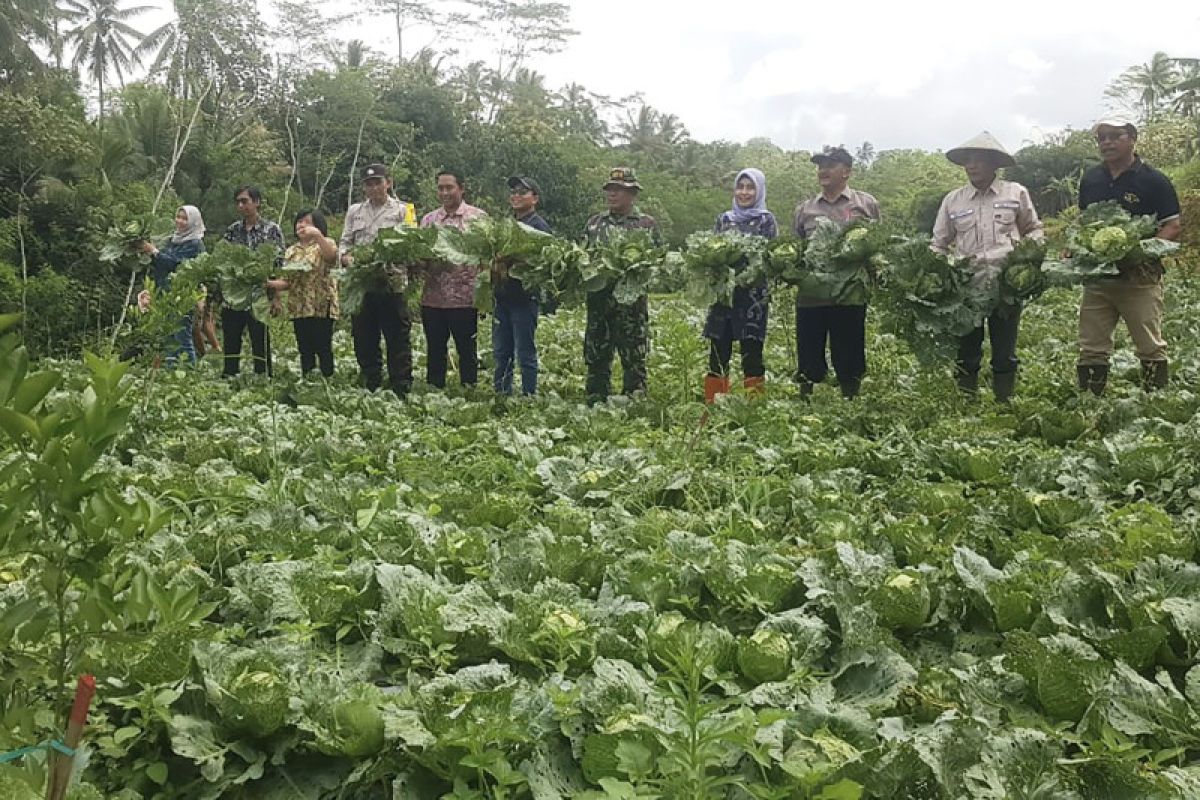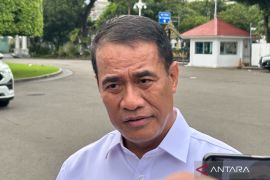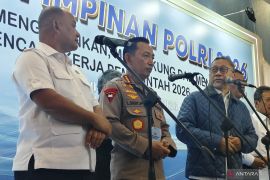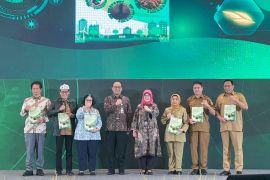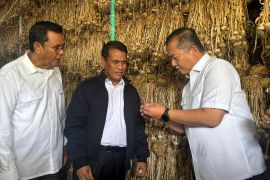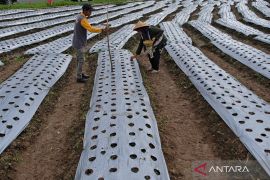Apart from interregional connection, ideally, infrastructure development supported the achievement of food securityJakarta (ANTARA) - Infrastructure development should be planned in order to achieve food security, according to a researcher from the Center for Indonesian Policy Studies (CIPS).
Researcher, Mukhammad Faisol Amir, highlighted the importance of taking this step on account of the still high prices of foods in Indonesia, thereby making them unaffordable to some.
"Apart from interregional connection, ideally, infrastructure development supported the achievement of food security. This is because of the ever-varying challenges for the agricultural sector," he noted in a statement received here on Thursday.
The challenges faced by the sector include climate change, for which the effects grew more apparent as of late, as well as the high distribution cost due to Indonesia's sheer size, he pointed out.
Amir noted that the consumer ended up paying for logistics costs as a result of which the foods were priced much higher at the consumer level.
Not only logistics but the price of fuel oil, which increased some time ago, added to the complexity of food distribution. Moreover, higher transportation costs to deliver to areas that are far from the food production centers, as compared to areas nearby, further exacerbated the matter, he pointed out.
Other factors, such as an increase in fertilizer prices, led to the hike in food prices, he remarked.
Thus, infrastructure development is expected to make prices more stable and ensure the availability of food commodities throughout Indonesia, he remarked.
Amir stated that infrastructure development should be planned in order to establish a more efficient food distribution scheme, including for imported foods. Such a scheme will allow for local and imported foods to be sent to all parts of the country, he added.
"This is what will impact the food commodity prices and also their availability," Amir said.
Infrastructure development also needs to be designed, so that it can support Indonesia's integration with international trade, thereby enabling it to not only export but also import goods and services in order to create added value and ensure efficiency, he explained.
He stated that by following the mechanism, Indonesia will become more competitive, in terms of exports and imports, and prices will follow the international mechanism, so there would be no one monopolizing certain commodities.
"With the ease with which goods or commodities come in and out of Indonesia, prices of those goods and commodities will become more affordable. It will have a positive impact, that is, the people can meet their needs with high-quality commodity at affordable price, and this will also encourage the growth of a region," Amir noted.
Food security-oriented infrastructure development will also present investment opportunities, as infrastructure is one aspect that prospective investors take into account, he noted.
He said that investment opportunities in national food distribution should be prioritized by both the government and private entities.
"If we talk about cold chain in the food distribution chain, growth is projected to reach 12.9 percent per year until 2026. This growth will ever increase, as there is a rise in consumer demand on perishable food commodities, such as milk, meat, fish, as well as vegetables and fruits," he stated.
CIPS urged the government to create a distribution scheme for local and imported food and commodities through infrastructure development that had currently been pursued. People, as consumers, will be the ones benefiting the most from food security.
Related news: Hot temperatures may threaten food security, agriculture: CIPS
Related news: Indonesia discusses regional rice reserve strengthening in APTERR
Related news: Govt seeking to boost agricultural productivity: Minister
Translator: Ade Irma Junida, Mecca Yumna
Editor: Sri Haryati
Copyright © ANTARA 2023
